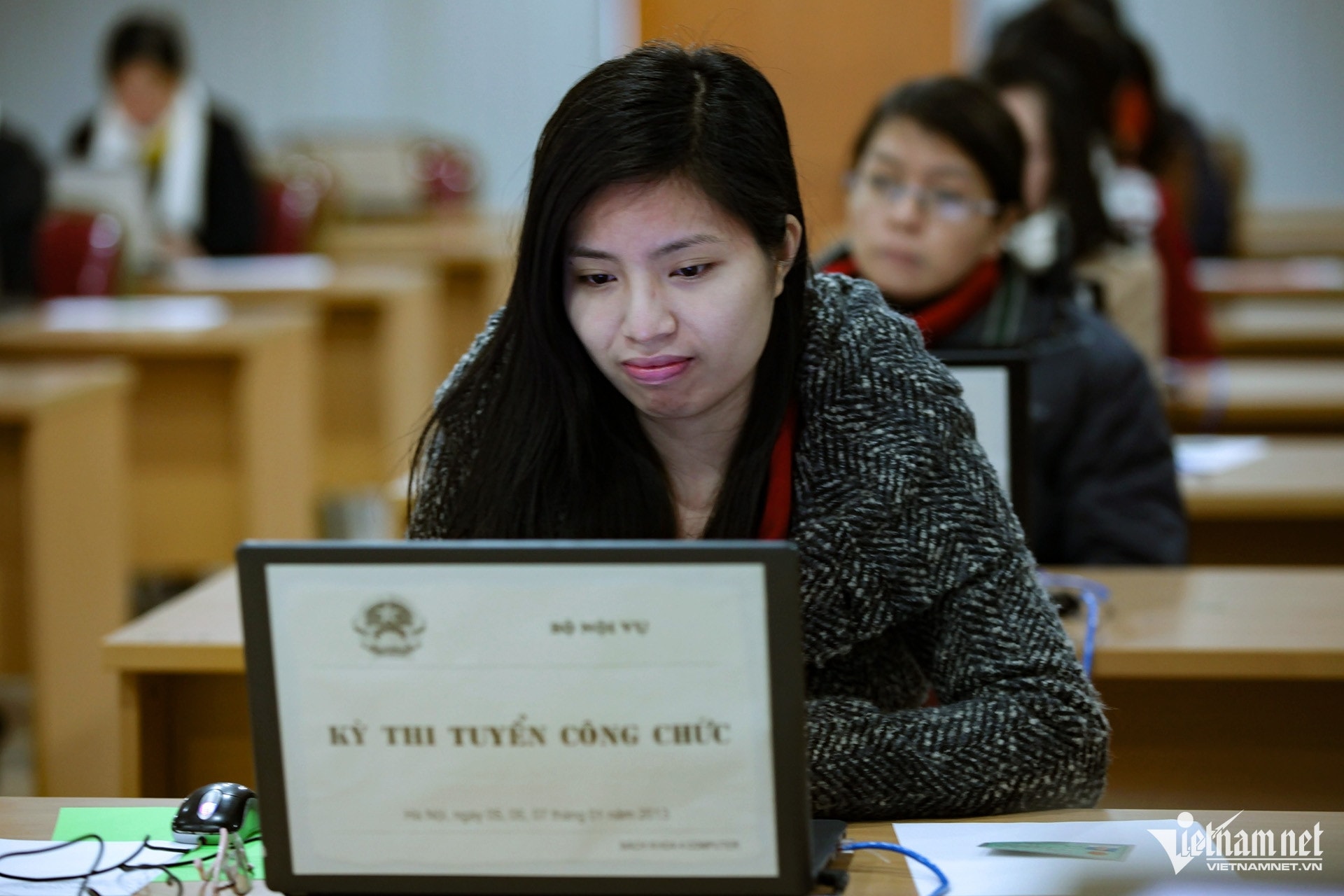In the debate about the capacity of commune-level officials and civil servants after the reorganization of administrative units at all levels, many people have raised the issue of in-service or regular degrees, university degrees or college degrees.

Many people think that there should be a fair exam to re-select commune officials when the scale and tasks of the commune level increase and become more difficult.
This exam will be equal for all cadres, civil servants and public employees from commune to provincial level, regardless of their degree. Because, degree is not the factor that completely determines work efficiency, especially at the grassroots level.
Full-time and part-time… are all equal before the exam.
Mr. Hoang Son said that if you go down to the grassroots and work directly with the people, even with a good university degree, you will have to "sweat" over things that are out of this world, nameless, and sometimes never recorded in documents.
"I have seen many officials with full qualifications but working timidly, their expertise in books cannot be applied in practice, only applied to processing documents on Word and Excel. Talking about qualifications over and over again is only to consider the salary coefficient for officials, but handling 8 hours of administrative work at the commune level requires a lot of work," Hoang Son stated the reality.
Agreeing with this opinion, Doan Ngoc said: “In our district, there is a person who is the Deputy Head of the Department of Internal Affairs who has a master's degree, but he consulted an invitation without a meeting date, and processed the document for 5 months without a response…”.
Mr. Ngoc suggested that when merging communes, there would be no district-level organization, and everyone would have equal rights. Everyone would have to take a written test, read and understand English; write documents in black and white on paper and on a computer... regardless of whether they are elementary, intermediate, university, or master's level to avoid the case of choosing "relatives", people with money, people with right-wing protection and support...
Another opinion is that degrees only reflect input factors and do not fully demonstrate actual working capacity, especially in management positions, which require leadership qualities more than degrees.
In fact, there are many cases of people trying to "buy degrees" to keep their positions, causing unfairness in the system. Therefore, instead of only evaluating capacity through degrees or entrance exams, it is necessary to combine it with evaluating work results over many years or assigning specific KPIs to measure work efficiency, this reader commented.
How to pass the exam is important.
Many people agree that there must be exams and tests, but how to do them is the issue that needs to be discussed, to avoid "lobbying" and causing suffering for officials. "In my opinion, we should consider age, qualifications, and actual ability to select," said Hoang Loc.
Meanwhile, Mr. Nguyen Kien proposed that the recruitment should be conducted in 3 public rounds: a round of reviewing documents, a round of multiple-choice and essay tests (graded by machine, results announced immediately), and a round of direct interviews about the job, about communication skills with the people...
Mr. Nguyen Dang Sang suggested that in addition to the recruitment exam, the most accurate assessment should be based on the work process and work results. Because through that, we can know the professional capacity, sense of responsibility, dynamism, creativity, sense of compliance with the organization, professional ethics, lifestyle ethics... Of course, the assessment needs to be fair, objective, and unbiased.
Nguyen Hoang shared a very thoughtful opinion about the way of recruiting civil servants and public employees. He pointed out the reality: Civil servant and public employee exams require many degrees and certificates, are organized very elaborately, but after a while, people who are not good at the job are "revealed".
“Meanwhile, private companies don’t test like that. With foreign companies, it’s even more practical. It’s about practical ability, work results, not the degrees you submit when applying.”
According to him, it is necessary to change the way civil servants and public employees are recruited. Specifically, avoid questions that are too theoretical, because when working, you can open a book or document to read again and understand immediately. The most important thing is still the ability to handle unexpected and difficult situations. A good person is someone who can handle problems well. And of course, the competition must be organized fairly and publicly.
To prevent negativity, some people think that the test should be organized like the driving license test, that is, taking the test on a computer, with surveillance cameras. Taking the test on paper, marked by humans, is prone to negativity.
Talking about the merger story, Ms. Trang Minh concluded: Merger is to be compact, but compactness must be refined. Compactness without refinement will result in low efficiency.
TH (according to Vietnamnet)